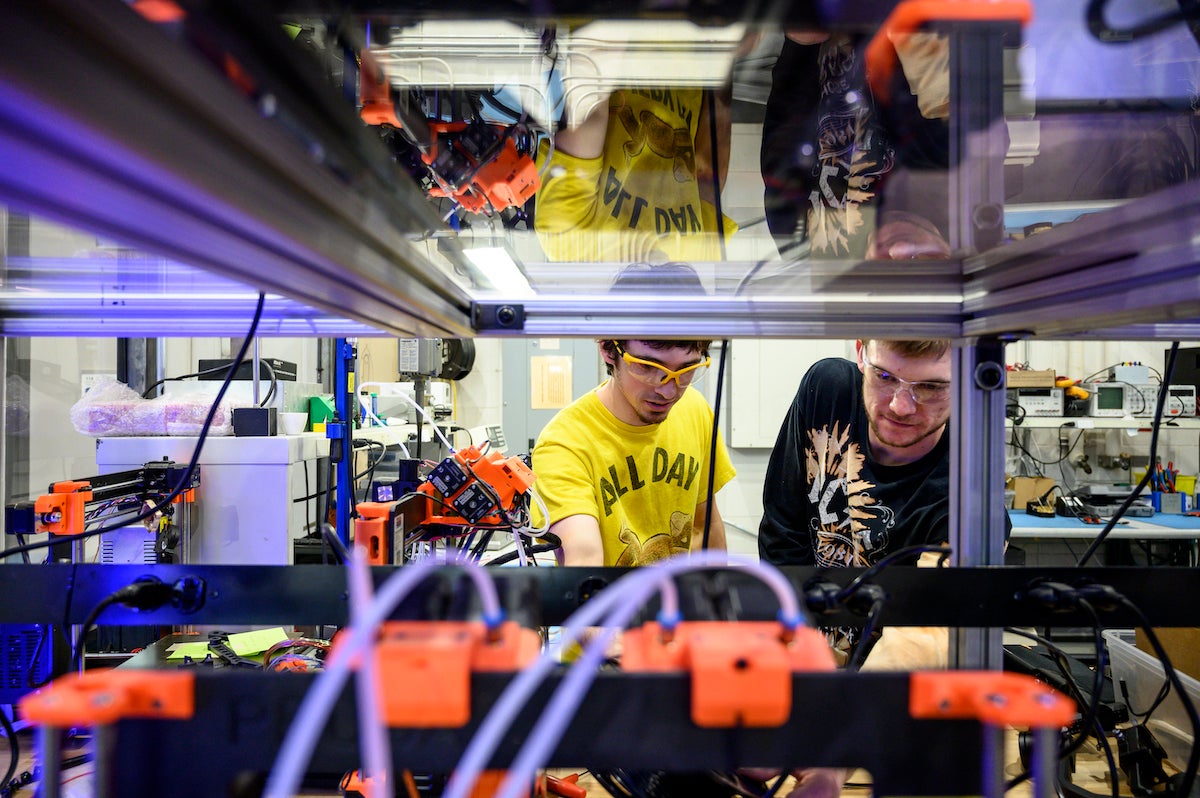
The National Science Foundation awarded nearly $5 million to Boise State’s College of Engineering as part of its scholarships in STEM program, the largest such grant awarded to a group of higher education institutions in Idaho. The six-year award will help with the recruitment and retention of students across the state with $3.6 million in scholarships and create easier pathways into engineering and computer science careers for students who have limited options for continued higher education access.
The grant will establish the Center for Advanced Energy Studies Scholars Consortium with the College of Western Idaho and College of Southern Idaho. Over 150 low-income students will receive scholarships to begin their academic journeys before transferring to Boise State where the scholarship will continue to support their degrees.
“It’s as if a first-year engineering or computer science student at these other Idaho institutions is also a first-year Boise State student,” College of Engineering Dean JoAnn S. Lighty said. “These scholarships are critical to the success of our strategic plan to improve the accessibility of our programs to Idaho students, including our community college partners, and ensuring student success.”
Don Plumlee, associate dean of academic affairs and associate professor of mechanical and biomedical engineering, is the principal investigator on the project. He believes the project will help build a cohort-like experience for students across Idaho through an existing relationship with the Center for Advanced Energy Studies.
“This is an incredible opportunity for Idaho and Boise State as we begin building a better engineering and computer science educational ecosystem through our community college partnerships,” said Plumlee. “New pathways into technical careers will support Idaho industry and have a positive impact on our rural communities as well.”
The grant includes a research component to investigate how the new pathways created for students across southern Idaho will improve self-efficacy, engineering and computer science identity, increase access and improve retention through the transitions along the pathways. Findings will be shared with the entire STEM community in the larger effort to support and build engagement with students and to gather insights into the specific degree programs that attract them.
“We’re going to be able to make recommendations to better support students interested in pursuing STEM careers, even those who have never seen themselves as cut out for these challenging paths,” said Katherine Wright, associate professor at the College of Education. “Helping students see themselves as valued members of the STEM community will produce research findings that will go beyond Boise State and even Idaho.”
Wright is one of three other co-investigators from Boise State on the project. Other co-investigators include College of Engineering Associate Professor Sondra Miller and Center for Advanced Energy Studies Associate Director David Estrada. The project also features associate professors from the College of Education and College of Engineering like Carl Siebert, Jerry Fails and Kurtis Cantley, as well as Amy Moll, director of the Micron School of Materials Science and Engineering.
More information about the grant can be found on the National Science Foundation website.